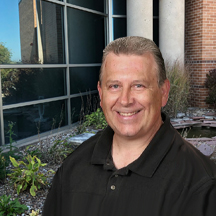
Forgiveness Is a Practice
“For if you forgive other people when they sin against you, your heavenly Father will also forgive you. But if you do not forgive others their sins, your Father will not forgive your sins” (Matthew 6:14-15).
“Then Peter came to Him and said, ‘Lord, how often shall my brother sin against me, and I forgive him? Up to seven times?’ Jesus said to him, ‘I do not say to you, up to seven times, but up to seventy times seven.’”(Matthew 18:21-22).
There’s one thing you can know for sure, in the course of your life, you’ll be sinned against. You’ll be misunderstood, falsely accused, and unfairly judged. What do you do after you have been offended? Someone has harmed you emotionally, physically, or psychologically. What do you do? Our first response is to retaliate, but we are told to forgive and forget. Wouldn’t it be better to give them a piece of my mind so that they will think twice about offending me? We can’t seem to forget about the offense so forgiveness seems impossible. How do I forgive someone and why should I forgive people for offending me?
The word forgive means: to give up or release resentment of an offense. The Hebrew word for “forgive” means to pardon or spare. The Greek word for “forgive” means to send forth, lay aside, let go, omit, put (send) away. In general, we can say that to forgive is to release the resentment caused by an offense.
It is not reasonable to think that you will wake up one morning with the disposition to forgive everyone. The only way that you are going to live a life of forgiveness is to practice forgiveness. Here is a few small steps to practice forgiveness:
Build a strong fellowship with your heavenly father. This brings faith and confidence that you will need when you are offended. This should be practiced on a regular basis and not when the offense comes.
Place God’s ability to bless you above the offense. That is, trust God in your life and know that no situation can change what God has for you. This is the attitude that you want to obtain.
Practice the love of God when dealing with people. If you love people, even your enemies (those who offend you), then it will be easy (or easier) to forgive them. You don’t resent who you love (or you can’t for long).
It takes time before the principles of forgiveness and the implementation of them become a part of your normal everyday life. Just start where you are. Jesus said that the Kingdom of God is like a seed. The Kingdom of God grows and it spreads. Great things will manifest in our lives just as the seed process produces fruit. The more you practice forgiveness then the more it will become a part of your normal life.
We live in a broken and fallen world where sinful actions leave consequences – even after forgiveness between people is offered or received. Restitution or reconciliation may not be possible where deep hurt has been caused, but this is not to say that the forgiveness was not genuine. We can genuinely forgive someone and still carry the residue of sin for years to come. Forgiveness does not mean that you forget. Forgiveness means to release resentment.
A mistake that we make is to look at the greatest obstacle in our lives regarding forgiveness and grieve over the fact that we can’t muster up enough energy to just “let it go.” Just deal with where you are and not where you think you should be.
Trust God fully! Believe that He is able to keep you and prosper you. Believe that God can move in your life regardless of the situations around you. Know that He is fully able to keep you regardless of your situations. This doesn’t mean that you walk around inviting people to offend you. It simply means that when or if you are offended, you know that God is greater and therefore won’t have to waste a second being upset or resentful about the situation.
Gary Sager
Ambassador of Care


